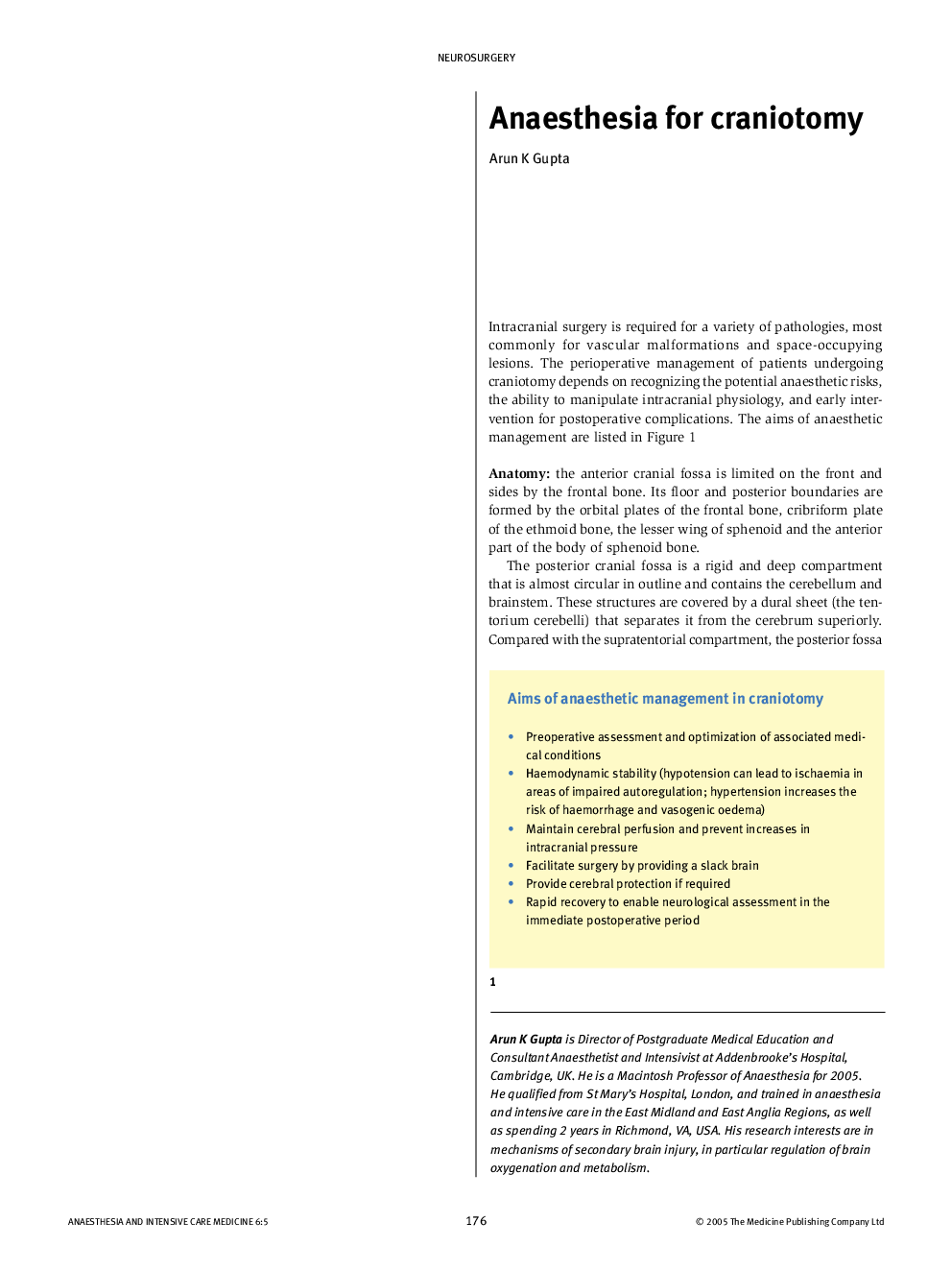| Article ID | Journal | Published Year | Pages | File Type |
|---|---|---|---|---|
| 9089516 | Anaesthesia & Intensive Care Medicine | 2005 | 5 Pages |
Abstract
Anaesthesia for neurosurgery requires an understanding of the pathophysiology of the presenting condition, the ability to manipulate intracranial physiology to provide optimal intraoperative conditions and the ability to respond to complications. This article outlines the principles for the perioperative management for patients undergoing craniotomy, incorporating anterior and posterior fossa surgery. A brief synopsis of the most common pathologies is given. Key features in the perioperative assessment are highlighted, and the general conduct of the intraoperative period is outlined. Management of intraoperative brain swelling is also summarized. Intraoperative positioning is considered, describing the advantages and disadvantages of different positions for surgery. Finally, the potential complications are highlighted, particularly those for posterior fossa surgery.
Keywords
Related Topics
Health Sciences
Medicine and Dentistry
Anesthesiology and Pain Medicine
Authors
Arun K Gupta,
